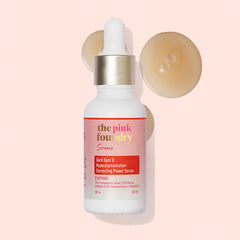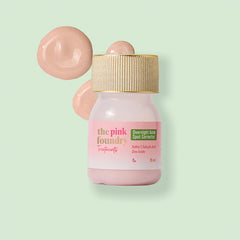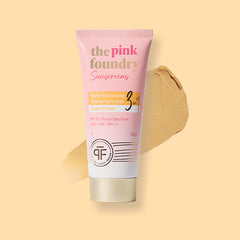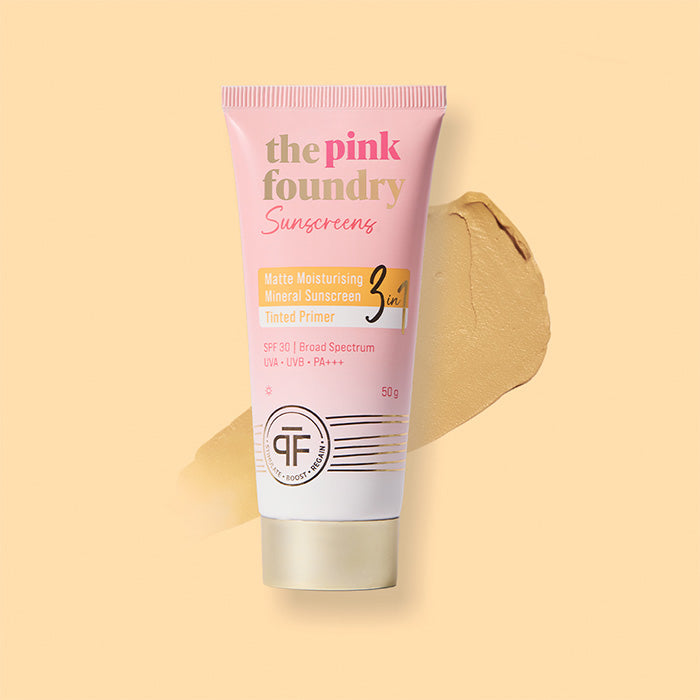Which Sunscreen is Best for Combination Skin?
Regarding skincare, sunscreen is one product you should never forget. Regardless of your skin type, sunscreen is needed to postpone the onset of premature aging. However, it might be challenging to choose the appropriate sunscreen, especially if you have a combination skin type. A distinct type, known as combination skin, displays dry and oily spots on the face.
Not sure about how to choose sunscreen for combination skin? A sunscreen with SPF 30 to 50 is recommended for optimal protection. This article explores the best sunscreen for combination skin in India.
Which Sunscreen is Best for Combination Skin in India?
Wondering 'Which sunscreen is best for combination skin?' In India, where the climate can be rather hot and humid, finding a sunscreen suited for combination skin can be particularly challenging. Finding a sunscreen that offers broad-spectrum protection is essential. Additionally, the sunscreen ought to be pore-unclogging, lightweight, and non-greasy.
How to Choose Sunscreen for Combination Skin?
Keep the following criteria in mind:
Water-based or Gel Formulas
If you have combination skin, it is recommended to use sunscreens with a gel or water base. When applied to the skin, these compositions are less thick and have no greasy feel. They are suitable for dry and oily areas and provide a balanced hydration level.
Non-Comedogenic
Non-comedogenic sunscreens are the best choice for combination skin because of their composition, which prevents them from blocking pores. Choosing a non-comedogenic sunscreen helps prevent breakouts and pimples on the oily areas of your face.
Also read: What does non-comedogenic really mean?
Matte Finish
Try to find sunscreens with a matte finish. These products efficiently moisturize the dry parts of the face while helping to regulate excess oil in the T-zone, which comprises the forehead, nose, and chin.
Hypoallergenic and Fragrance-Free
To avoid any potential irritations, use a fragrance-free, hypoallergenic sunscreen. This is especially important if you have combination skin in addition to sensitivity.
Test Before Full Application
Try the sunscreen on a small skin patch before using it on your full face. This can help determine whether the product has any negative effects.
Which Type of Sunscreen is Best for Combination Skin?
The two main types of sunscreens available are physical (mineral) and chemical. Let's have a detailed look at which type of sunscreen is best for combination skin.
Physical (Mineral) Sunscreens
The Pink Foundry's Mineral Matte Tinted Sunscreen deflects and scatters UV rays from the skin by creating a blockade. It contains ingredients like zinc oxide or titanium dioxide. Physical sunscreens work effectively on combination skin types. Since they are less likely to irritate the skin, they are appropriate for delicate areas of the face.
Chemical Sunscreens
Common chemical sunscreen ingredients include oxybenzone, avobenzone, and octinoxate. These sunscreens can be helpful for those with combination skin, even if some people might find them unpleasant or a bit thick, especially if they have sensitive skin.
Also read: Difference between physical and chemical sunscreen
Which SPF Sunscreen is Best for Combination Skin?
Wondering 'Which SPF sunscreen is best for combination skin?' Sun Protection Factor (SPF) measures a sunscreen's ability to protect skin against UVB radiation. The Mineral 3 in-1 Sunscreen has an SPF of 30 that shields around 97% of UVB rays, which provides ample protection without feeling unduly thick on the skin.
If you spend a lot of time outside, especially at the peak of the sun's rays, you can choose a higher SPF, such as SPF 50. Be mindful that stronger SPFs tend to feel heavier on the skin, which may not be ideal for those with combination skin. Finding the ideal balance between safety and comfort is crucial. Investing in the Pink Foundry’s sunscreen can be a great option, as it offers optimum protection.
In addition to choosing the best sunscreen for combination skin, there are a few more important considerations to keep healthy, bright skin:
Exfoliation
By clearing clogged pores, regular exfoliation helps to achieve a smoother complexion. Be careful not to over-exfoliate since this might peel the skin and increase oil production.
Toning
Apply a light, alcohol-free toner to the skin after cleansing to balance its pH and prepare it for improved serum and moisturizer absorption.
Moisturization
Even though some areas of your face are prone to excessive oil production, it's still vital to moisturize the skin. Look for light, non-greasy moisturizers that are ideal for combination skin.
Spot Treatment
If you experience breakouts or have areas prone to acne, keep a spot treatment on hand that targets blemishes with ingredients like tea tree oil or salicylic acid.
Wrapping Up
Taking care of combination skin can be difficult, but with the right sunscreen, you can keep it protected, hydrated, and acne-free. Pick a non-comedogenic and hypoallergenic sunscreen that is water- or gel-based. Consider experimenting with chemical and physical sunscreens to see which best matches your unique combination skin type.
Remember that a comprehensive skincare routine includes more than just sunscreen. Remember to moisturize and clean your skin regularly, and if you have any specific skin problems, consult a doctor for personalized advice. With the appropriate protection and upkeep, you can retain healthy, glowing, well-nourished combination skin even under the harsh Indian sun.















